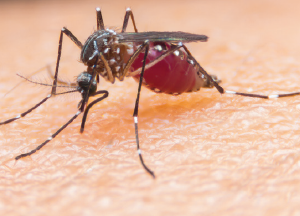Ofer Jacobowitz, MD, PhD, of ENT Allergy & Associates in New York City, presented his study on the efficacy of a “novel in-office bipolar radiofrequency (RF) treatment” to relieve obstruction in the nasal valve area. The study, funded by Aerin Medical for FDA 510k clearance for its VIVAER nasal remodeling device, looked at its safety and effectiveness in heating and remodeling tissues in the nasal valve area to alleviate nasal obstruction.
Explore This Issue
June 2018The procedure is done under a local anesthetic with a specially designed probe, as compared with invasive nasal surgery in an operating room. Fifty patients with a Nasal Obstruction Symptom Evaluation (NOSE) scale score of at least 60 were selected for the study. Patients received a single treatment, and follow-up lasted for 26 weeks.
No serious adverse events were reported. The mean NOSE score fell from 79.9 at baseline (SD 10.8, range 60-100) to 24.7 at 26 weeks (SD 20.4, p<0.0001), results similar to those of nasal surgery, Dr. Jacobowitz said. He acknowledged that a limitation of the study was its small population and that follow-up extended for only about six months. But he added that a European pilot study found that the efficacy of similar treatment maintained positive results at a mean follow-up of two years.
Dr. Jacobowitz is working on a clinical trial to extend his follow-up information.
Early Swallow and Hearing Outcomes in Infants with Zika Exposure

© Surapol Usanakul / shutterstock.com
Si Chen, MD, of the House Ear Clinic in Los Angeles, presented a first-of-its-kind review of infants who were exposed to the Zika virus (ZIKV) in the year after the February 2016 public health emergency declaration by the World Health Organization (WHO). The report sought to quantify early swallow and hearing outcomes for those exposed in utero but born without microcephaly or imaging evidence of neurologic malformation.
The retrospective chart review tallied 89 ZIKV-exposed (ZIKVE) infants and 15 controls, based on pregnancies occurring between January 2016 and May 2017. Weight, length, and head circumference showed no major differences between the groups.
Ten ZIKVE infants demonstrated dysphagia and four ZIKVE infants failed newborn hearing screening. However, neither of those results was reported as statistically significant. The report also showed that the three infants who tested positive for Zika had brain abnormalities and swallowing issues. Dr. Chen says more follow-up will be done via a three-year Florida Department of Health grant that runs through 2020.